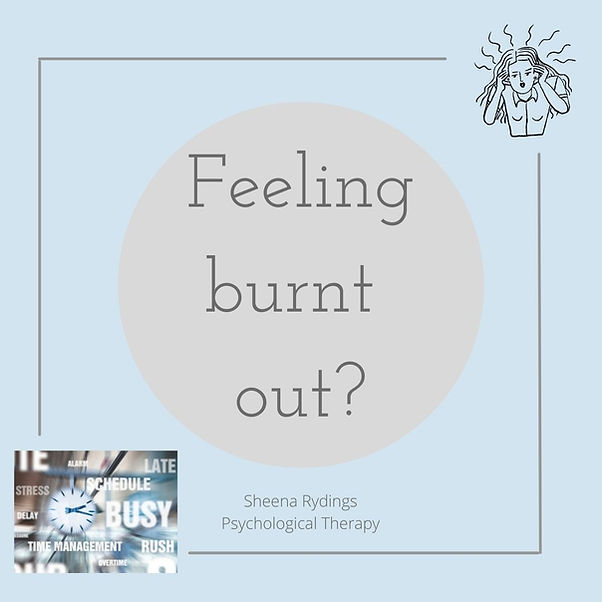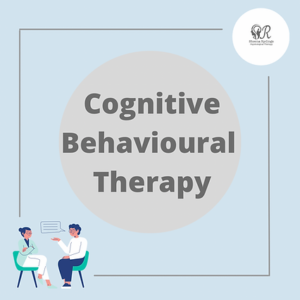Have you been feeling down, stressed, anxious or overwhelmed recently? These are often signs of burnout.
But, what is burn out?
Burnout is not a diagnosed medical condition and can be hard to describe when you feel it. It is often defined as a physical, emotional or mental exhaustion.
These feelings can be accompanied by low motivation, low energy, negative thoughts and negative attitudes towards self and others. Quite often people don’t realise they have reached burnout until they feel they are to exhausted to function. According to WHO (World Health Organisation) burn out is characterised “feelings of energy depletion or exhaustion, increased mental distance from one’s job, or feelings of negativism, and reduced professional efficacy”

What are the signs of burnout?
Some common signs are:

- Fatigue- You may feel like you need to sleep all the time, feeling exhausted, or simple tasks you would ordinarily do take longer to complete.
- Low motivation- you may feel that you have lost the ‘get up and go’ feeling,
- Apathy- feeling dissatisfied with work or hobbies, not getting the same sense of enjoyment from things you would normally, or generally loss of interest in life.
- Headaches
- Changes to sleep- You might find that you are sleeping more or less, napping in the day or seeing a change of routine
- Recognising you have burnout is a good start to recover. Quite often we don’t recognise burnout until we experience all of these symptoms. A lot of people live their lives at 100 mile per hour, we also can have lots of different roles in life for example I am a therapist, mother, wife, daughter, sister, friend then I have to try and fit in eating well, exercising and fitting in my hobbies. At some point, something has to give, and quite often the thing that gives can be our mental health. It is no wonder we can feel overwhelmed!
So, what can you do if you recognise you have burn out?
- Establish a daily routine – If you have noticed your burnout is coming from blurring lines in a work life balance, it is important to set boundaries. Creating and setting boundaries are really important, perhaps try setting an alarm to stop work. Try to plan in and schedule some time for yourself and to build in some time for hobbies.
- Exercise – Finding energy to exercise can be really hard when you have burnout, but exercise does give you lots of benefits. So if you can find even a few minutes of physical activity, or a stroll to include movement in your day this will help boost how you’re feeling.
- Get out in nature- evidence shows that being out in nature, fresh air and vitamin D (if the sun is shining!) is really good for your mood. 30 minutes of day-light each day will also have a positive impact on your sleep.
- Try mindfulness- mindfulness allows you to focus on yourself and how your feeling in the present moment. It will help you identify when you are feeling overwhelmed.
- Relaxing activities such as yoga, meditation or Thai chi can be really helpful. Burnout can be felt physically in the body so practicing these types of activities can help reduce stress and tension in the body
- Breathing techniques such as Balloon breathing or box breathing can really help stimute the rest and digest part of the nervous system. This is particularly important when we have tension in our body and if our fight or flight system is activated.
- Make sure you get enough sleep
- Seek support- this can be from a family member or friend, it could be from your boss or work colleague if you feel a lot of burn out is from work related stress.

If you are struggling from burnout, you can always seek professional help from a Therapist, this can be privately or via NHS. Please contact me using my contact form, or email info@sheenarydingstherapy.co.uk or 07845218844 if you would like to enquire about support.



